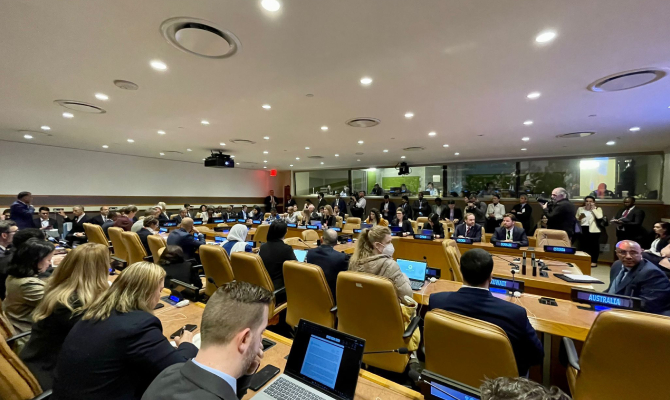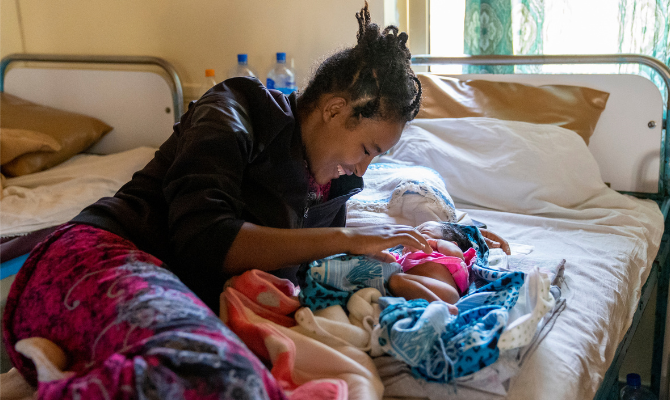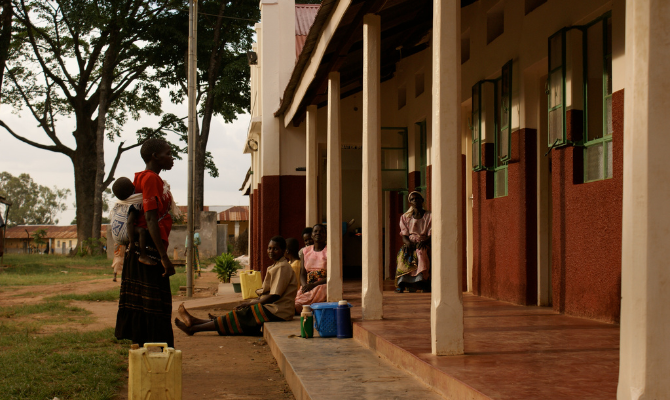On May, 24 we attended the High-level Pledging Event to Support the Humanitarian Response in the Horn of Africa hosted by United Nations Secretary-General António Guterres together with the Governments of Italy, Qatar, the United Kingdom and the United States, in collaboration with the Governments of Ethiopia, Kenya and Somalia, in New York.
“The conference was a key moment for many countries and the whole international community to renew their commitment in support of Ethiopia, Kenya and Somalia where conflicts and violence such as the Tigray crisis are compounded by the catastrophic effects of climatic shocks with the fifth drought season recorded. Doctors with Africa CUAMM is committed to building resilient health systems, capable of adapting to both climatic and socio-political shocks and accessible to the population, with special attention to the most vulnerable communities: women and children” states Andrea Atzori, Head of International Relations.
The Horn of Africa is the epicentre of one of the world’s worst climate emergencies. An estimated 43,000 people died in 2022 in Somalia, most likely due to the drought, half of whom may have been children under age 5. Millions remain displaced because of drought as well as conflict.
At the present moment, the region is experiencing its most severe and protracted drought in decades. As a consequence, at least 32 million people across the region need lifesaving assistance, 28.6 million of them are located in Ethiopia where Doctors with Africa CUAMM has been working for over 30 years in collaboration with government, districts and local authorities to strengthen the health system.
Hunger and food insecurity are of particular concern as they are directly related to both drought and heavy downpours, the former resulting in crops and livestock production loss as in flash floods and loss of homes the latter. Moreover, health related problems are rising as a consequence of water insecurity further compounding the situation. Ethiopia, Kenya and Somalia are witnessing a higher number of waterborne diseases with outbreaks of cholera and measles on the rise especially among children. Climate shocks, food insecurity and reduced livelihood access are also exacerbated by conflicts and resultant displacement, shedding a light on the urgent need of humanitarian intervention.
Representatives from non-governmental organizations, Member States and experts debated solutions, ranging from long-term investment in people and infrastructure to alternative ways for people to earn a living, adapt to climate change and thrive in the future.
With the Horn of Africa facing the combined impacts of a historical drought, conflict and economic shocks, funding of humanitarian response plans are being allocated at scale for a total amount of about US$2.4 billion. Way less than the $7bn the UN says are needed to tackle the region’s crisis and provide help to 32 million people affected by drought and conflict in the region. Nonetheless, the funds announced will allow humanitarian agencies to sustain aid pipelines of food, water, health care, nutrition and protection services.
“We welcome the announcements of support for the people of the Horn of Africa, who need our sustained commitment to recover from a crisis of catastrophic proportions,” said Joyce Msuya, Assistant Secretary-General for Humanitarian Affairs and Deputy Emergency Relief Coordinator. “We must persist in pushing for stepped-up investments, especially to bolster the resilience of people already bearing the brunt of climate change.”





